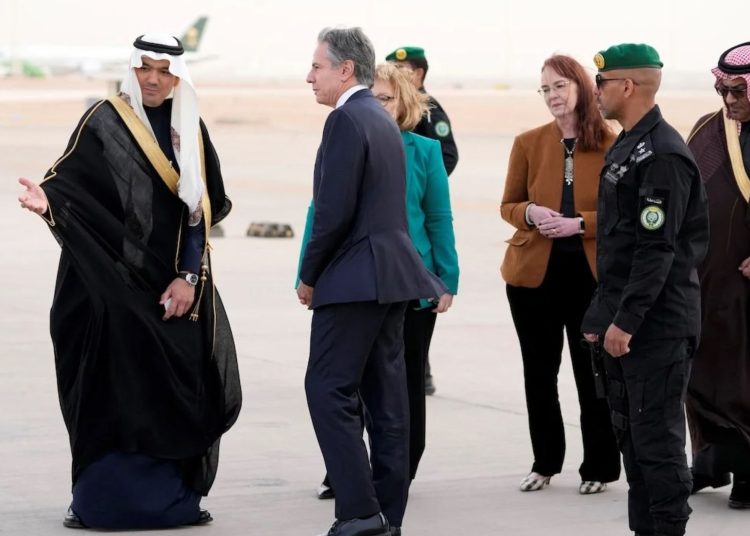Dialogues are transpiring, contemplating the governance landscape in post-conflict Palestine—a discourse in which Saudi Arabia’s influence looms larger than that of Qatar.
By Hamidreza Kazemi
The renowned 19th-century Prussian military thinker, Carl von Clausewitz, is famously attributed with articulating a profound perspective on the nature of war. He posited that “war is the continuation of politics by other means”. This assertion should not be misconstrued as an affirmation or glorification of warfare; instead, it underscores an unvarnished truth: absent political considerations, military successes often yield little or no strategic value. In line with such thought, it is noteworthy that the Middle East has been ensnared in conflict for the past four months—a tangible consequence of the region’s political dynamics over recent years.
Over the preceding month, the apparent thwarting of the Israeli regime’s objectives, namely the liberation of captives and the destruction of Hamas, has instigated the United States to intensify diplomatic endeavors aimed at politically navigating the crisis. This shift seeks the fruition of outcomes that military engagement has failed to secure. Consequently, a strategic blueprint named the Paris proposal has been drafted, featuring a phased ceasefire approach that ostensibly aligns with Israel’s strategic imperatives.
Employing the logic that the window of opportunity for accepting the agreement is ephemeral and posits the best prospect for Palestinians to broker a deal, the United States has exerted pressure on both Qatar and Egypt to sway the resistance factions in Gaza to consent to the stipulations of the Paris proposal. This backdrop facilitated Ismail Haniyeh, Chief of Hamas’ political bureau, to embark on a visit to Cairo, where consultations with delegates from various Palestinian factions, encompassing Islamic Jihad movement and Hamas, unfolded, focusing on the deliberations over the Paris proposition.
Western media sources have characterized Hamas’ stance toward the proposal as “yes, but…”, stipulating conditions for a comprehensive ceasefire and humanitarian assistance, alongside the demand for the Zionist regime’s full withdrawal from Gaza. Conversely, media outlets close to the resistance axis have critiqued the Paris proposal for its perceived failure to safeguard Palestinian resistance interests. Concurrently, larger dialogues are transpiring, contemplating the governance landscape in post-conflict Palestine—a discourse in which Saudi Arabia’s influence looms larger than that of Qatar.
The revelation by Israeli outlets of a clandestine assembly of security agency chiefs from Saudi Arabia, Jordan, Egypt, and the Palestinian Authority in Riyadh, focusing on Palestine’s future, coupled with the Saudi Foreign Ministry’s postulation of two pivotal preconditions for establishing normalized ties with Israel—insisting upon Israel’s complete Gaza withdrawal and the establishment of an independent Palestinian state within the 1967 borders—reveal the substantive nature of ongoing political talks, particularly following US Secretary of State Anthony Blinken’s visit to the region.
Given these dynamics, the potential for political leverage in shaping the future of Palestine and the region appears diminished. The military faction of Hamas, amidst the ongoing crisis in Gaza, has not been able to adequately transcribe their viewpoints into the political discourse. Additionally, the resistance forces have not yet succeeded in steering the situation toward a juncture that would permit their influential participation in these political trends.
In this envisioned American-facilitated resolution, not only are resistance groups notably absent, but it also appears that Saudi Arabia has strategically sidelined the UAE from the Palestinian future talks, instead capitalizing on its role. Qatar’s involvement is seemingly circumscribed to the issue of Israeli prisoner release without bearing on subsequent Palestinian developments. Hence, Saudi Arabia emerges as a pivotal political agent in the evolution of Palestine’s future, potentially indicative of its own aspirations toward formalizing relations with the Israeli regime.
As a central figure of the resistance axis, Iran is compelled to astutely address the Paris proposal, weaving strategies that reflect the collective principles and interests of the resistance front. This entails substantive consultations with countries including Turkey, Indonesia, Malaysia, Oman, Qatar, and Kuwait with an aim to propose defined positions and strategies that resonate with the ethos of the resistance front.
The views expressed in this article are those of the author and do not necessarily reflect the positions of Iran Nuances.






